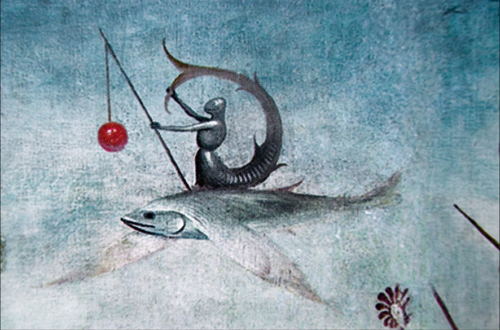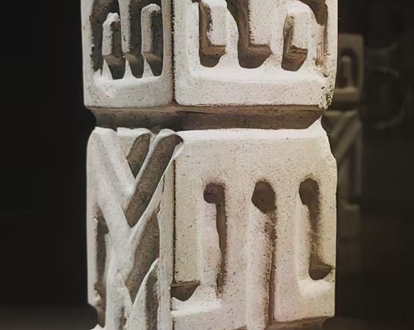(January 25, 2019)
Diego Tapia Figueroa Ph.D. and Maritza Crespo Balderrama, MA.
«Everything I do, I do with joy»
Michel de Montaigne (trans. 2007, p.588)
These are times of death for women in Ecuadorian society and other societies around the world. In Ecuador, every three days there is a femicide, where the murderer is a partner or former partner. According to the United Nations, 87,000 women were killed in 2018. In 58% of cases, the killers were their partners or close relatives. Without a gender focus in public policies, without education for men and boys -with the whole society- based on human rights, gender violence is legitimized, normalized, and naturalized which is a structural problem.
Sexist and criminal violence (taking away the dignity of women’s bodies, subjecting them to control, repressing them) multiplies, continues in impunity, is relativized, invisibilized, and silenced to cover it up and justify the complicity of the State, current governments, justice, the police, religion, the family, education (all social institutions, guarantors of maintaining the power and privileges of men).
The daily social-relational misery -amplified in an omnipresent way by the media by social networks- is imposed as a model (garbage-model, garbage-education, garbage-society). The relationships we establish are sustained by the irresponsible and irrational loss of criteria to discern, reflect critically, choose: «do not think… act!». The loss of the consciousness of the other and the loss of the culture of good treatment is what predominates. However, in the forms of relationships we experience, only dialogue can be considered good treatment as a first option. All other forms of relationship are abuse and mean exclusion.
We live -by imposition- in a garbage culture, of sexist abuse as a normalized north and legitimized by routine and social and political blindness; a culture of cowardice, abjection, stultification, sappiness, pusillanimity, and anomie. We impose (on each other) the tyranny of degraded, dehumanized, meaningless contexts: yesterday’s crime scandalizes and outrages a little less than today’s, which in turn will be forgotten and surpassed by tomorrow’s and thus ad infinitum, of horror and macho barbarism. In everyday femicide: zero justice, zero reparation, zero social and ethical responsibility, zero transformation of the relational being; the regression to the zero state of humanity.
Simone de Beauvoir said: «History shows us that men have always had all the concrete powers; since the beginning of patriarchy, they have found it useful to maintain a state of dependency; their codes have been established against her and in this way, she has been turned into the other. That condition served the economic interests of the male, but it also suited their ontological and moral pretensions.»
But it is not necessary to reach femicide. In everyday dealing, relationships -in this patriarchal society- are constructed from an ideology and hierarchical perspective. Men consider women to be their property. As adults, parents consider that children are their property and that they can oppress and impose, abuse and exercise cruel and unjust violence «for the sake of» children; equally, men think women belong to them, they manage a criterion of «ownership» about the woman, her body, her being.
Patriarchal culture and ideology have also convinced many women that their owners are men; that they must accept and resign themselves to a position and role of subalternity in their relationship with them and their power. Women carry the owner inside, in their relationship with themselves and with others, so the external manifestations of that domain are not easily perceived, they are «normal», they are signs of love.
This culture has convinced the majority of the population that women are an object, or at most, in an excessive gesture of generosity, second-class beings, homologated to the primitives or animals and, therefore, their reactions are uncontrolled and irresponsible -hormonal- and merit «locating», controlling them, giving them lessons (even if this implies a knife in the throat). The dogma of the ideology of the male remains: the woman is only a vagina; it is just an object for use and abuse, with total Impunity.
The repetition of the woman’s duty to be, to control and oppress her to tame her socially («to be and to appear»), causes women to reproduce the culture of their oppression, in addition to tyrannizing it with guilt, fear, and various forms of social and cultural violence.
The conviction prevails that women should exist, only and exclusively, according to the needs of men (who, as every day, are more afraid of losing their power and privileges, practicing more physical, sexual, psychological, emotional abuse and mistreatment against women). It is the needs, aspirations, interests, dreams, and goals of men that count. The others, those of women, have no sense or reason to be respected and shared. Moreover, they probably do not exist and in the «absurd» hypothesis that someone recognizes them, they do not have to be considered.
From this comfortable patriarchal ideology, the role of women is to gladly serve men, to please them permanently (without «foolish and useless» vagaries of rebellion or criticism) to be his friend-lover-mother-sister-daughter-adornment-slave-rest of the warrior. His greatest happiness and fulfilment will be to obey Him, satisfy Him, and always understand Him; adapt to its needs, renounce their interests and objectives (judged as inconsequential) abandon and deny their right to their autonomy, independence, and dignity. To go through life, society, and the world of men, asking for forgiveness for existing.
She must settle for fulfilling the duties that make her worthy of her master, owner, and employer and, even better if she learns to look at herself (and teaches others) with the eye of the one who controls, orders, and commands (and kills). Their rights will be those that men grant them, their obligations to their owners will be an unquestionable, natural, and eternal right of males. Obviously, when it is «exaggerated» when the master «goes out of hand», his human rights will be spoken and wielded; to cover up crimes and criminals, moralistic, politically correct discourses and practices will be implemented (they will be accepted as «victims», which is a way of not considering them interlocutors at the same level) and rebellions will be instrumentalized and manipulated so that they do not threaten the patriarchal structure and maintain -made up and improved- the prevailing status quo.
The culture of death imposed by patriarchal society is terrified of women’s desire to be free, their autonomy, their solidarity, and their criteria to love and be loved; to build politically what is different, without the oppressive prejudices of culture, religion, the family, education and all the institutions that want to control it, oppress, exploit and alienate.
As a society and citizens, we need to create plans to act socially in transformative ways. A way of relating with curiosity, acceptance, and respect in all interrelationships, to try to respond with others to the question of how do we want to live?
It is about understanding and conceiving the social relationship of men and women, as a useful and emancipatory form from the unjust and oppressive social conditions existing in today’s society. It is understood that human needs others for the joint construction of meanings, to be just and responsible with people, to prevent abuses. The ethical conceptions and political perspectives that are handled are (obviously) culturally and historically situated constructions. The words «ethics» and «politics» begin to have meaning only in the relational contexts in which one participates. It is important to broaden the horizon of possibilities and worldviews to create other ways of social life. A process in which we generate the conditions to relate in new and different ways.
Constantly and passionately seeking to open possibilities and open sensibilities, we must ask ourselves: what really matters; what is valuable? From a reflective pragmatism, ask ourselves: What do we want to create that matters to others, that has value for others? The value lies in the well-being of the process. Transform relationships to build the future; futures that really matter to us.
The ethical and the aesthetic are thought of as ways of connecting with politics that rebels against all forms of domestication and social control. A liberating political process, that allows us to recover our voice, that creates the conditions of relational possibility so that the multiple voices engage in these complex conversations that create new social life; in which we can become what we, as humans, would like to be.
What kind of world and society are we living in, and what world and society do we want to create? What are we going to do, what do we need to do differently? How to live with respect and curiosity? How to live complexity and uncertainty? What future do we want to build? How do we connect through dialogue -to create possibilities for different futures- respectful of the human rights of children, women, and men?
How to bring our resources into this dialogue that has a transformative purpose? Because the position from which we choose to relate is committed to contributing to caring for dignity and integrity in all these relationships with relational ethics; relational ethics means asking: what do we build together that means well-being? How can we take care of our relationships, so that we can jointly create life, meaningful life? What kind of future can I contribute to? The question remains: What are we creating together, to generate the possibilities of a present with the ethical, social and political relational conditions, which mean equity, justice, responsibility, dignity, freedom?
https://iryse.org/sociedad-patriarcal-cultura-de-muerte-asesinadas-por-ser-mujeres/

English translation of Bruno Tapia Naranjo


